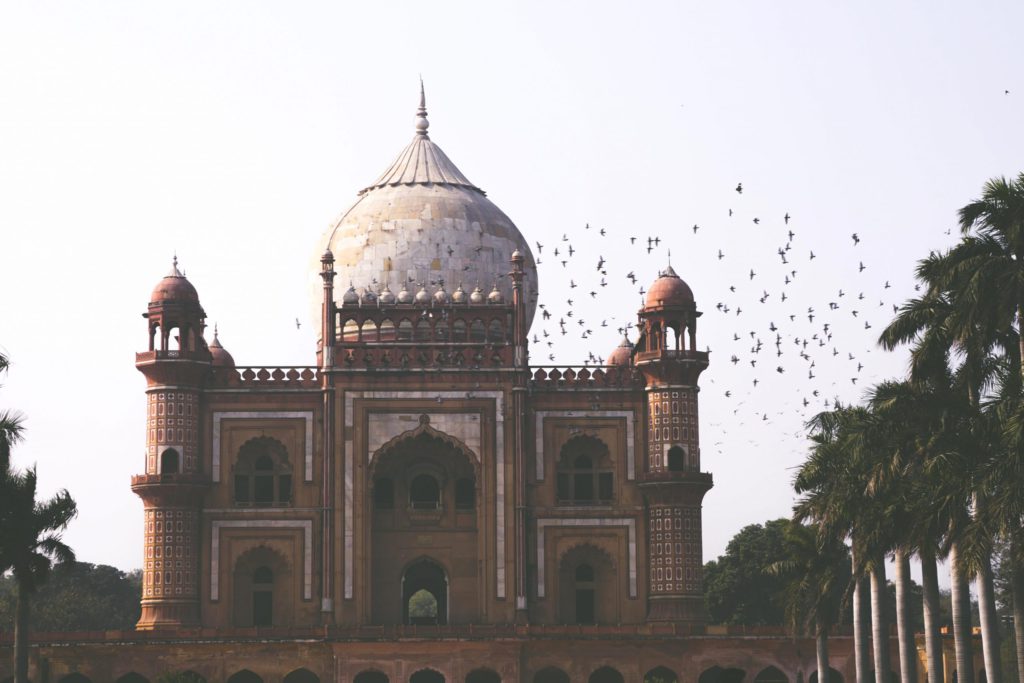Born in 1898 in Aligarh, Uttar Pradesh, Khwaja Abdul Hamied blatantly defied the British colonial rule and his father’s involvement in the British Government’s judicial services. Hamied had received several warnings for conducting political activities from the Miur Central College, Allahabad University, where he was an M.Sc student. Yet he led the Non-Cooperation Movement there that resulted in his expulsion from the college along with 200 other students. However, this neither stopped him from opposing the British nor from satiating his thirst for knowledge.
Hamied was immediately appointed as a chemistry lecturer after expulsion in the then newly formed Jamia Millia Islamia, which stood firmly on the grounds of anti-colonialism and pro-independence aspirations. The appointment was a momentous occasion for Hamied as he set up the entire chemistry laboratory in the university. But for a man of his calibre aspiring for the development of his beloved nation, this was merely a start.
In 1924, Khwaja landed in Germany, the then leading manufacturer of chemicals as a PhD student. The journey to Germany wasn’t easy; the District Magistrate refused to provide Hamied a passport owing to his political activities. He ultimately was given one thanks to his uncle’s pleading.
Khwaja realised that though he excelled theoretical chemistry, practically he was struggling, quite in contrast to the other students in Germany. This was unsettling for Khwaja Abdul Hamied, who had a thirst for knowledge from a very young age. From learning the Quran to an extensive education in Persian, Arabic & Arithmetic by the age of 10, Hamied’s family, particularly his father, had largely contributed to him becoming a man of culture and intellect.
Upon completing the doctorate degree in Chemistry, Hamied stayed back in Germany to enhance his practical skills. He learnt from the best and prepared himself to achieve the best. Additionally, he learnt pharmacy for a few months in Germany which proved to be useful for him later.
When he felt he was ready to put his knowledge into action, Khwaja Hamied left for India. It was on his return voyage in 1928 that he perceived India’s need of a chemical laboratory for research and manufacture of drugs. He envisioned an institute which would provide practical training and an opportunity for research to young Indian graduates.
While leaving Germany not only did Hamied bid goodbye to the wonderful professors he deeply respected but he also left behind his lady love, Luba, whom he had met in Berlin in 1925. There’s something really heartwarming about the fact that on his first meeting with Luba, he drew her a map of Hindustan. A nation that he described as a land of Hindus & Muslims, where everyone was united, irrespective of religion. The couple reached a happy ending in April 1928, when Hamied went back to Berlin briefly and the two got married in a mosque.
Hamied’s hand-drawn map of Hindustan, taken from brill.com
On reaching India, Khwaja was left disappointed as his plan for a technical research institute couldn’t materialize. In the following years, his dream to set up a chemical and pharmaceutical laboratory took a backseat. The little income he earned was through selling typewriters, sewing machines and Okasa, a drug for male impotency. Hamied’s father suggested that he join the government services but the nationalist Hamied flatly refused. His business eventually flourished and Hamied finally formed The Chemical, Industrial and Pharmaceutical Laboratories – CIPLA in 1935, giving the company all his patent and proprietary formulae without charging any royalty, reflecting his selflessness. He purchased the pharmaceutical machinery he could afford, having received little public support owing to their skepticism of the company’s capabilities.
“Never again will India be starved of essential drugs.”
This was Hamied’s promise on forming CIPLA, and the company stands true to his promise even today, providing lifesaving generic drugs at affordable prices. The journey wasn’t free of hurdles; the global practice of patenting drugs and their production process left CIPLA in a spot.
When CIPLA started producing propranolol in India, a drug which was already patented by a US pharmaceutical company, patent issues were inevitable. However, the Government of India led by Indira Gandhi stepped in and changed India’s patent laws- A drug could no longer be patented, only the process of manufacturing it could. Thus, CIPLA was free to reverse engineer, produce and sell at low prices any drug as long as the manufacturing process was different.
While handing over the company to his son, Yusuf Hamied, Khwaja Abdul Hamied clearly stated his intention for forming the company: to provide effective but inexpensive drugs to the poor. From developing a low priced, extremely affordable anti-HIV drug to introducing the world to Q-TIB, CIPLA has contributed greatly to India’s pharmaceutical industry. Q-TIB is a drug that aims at preventing tuberculosis in people suffering from HIV.
Hamied’s unwavering resolve of bringing about a lasting change in India that would benefit the youth & the poor was brought to life with his intellect and endurance. Khwaja Abdul Hamied brought to the world drugs that continue to save millions of lives and a plethora of knowledge and opportunities, for which we will be forever grateful.
“Man may boast of his skill, knowledge and hard work (sic) in achieving success, but I always consider it as a blessing from God Almighty who controls the destiny of man, without whose will no one can rise or fall. It was my unshakable faith in God, coupled with my knowledge, hard work and the principles of love, truth and non-violence which helped me to achieve this position in such a short time.”
-Khwaja Abdul Hamied




